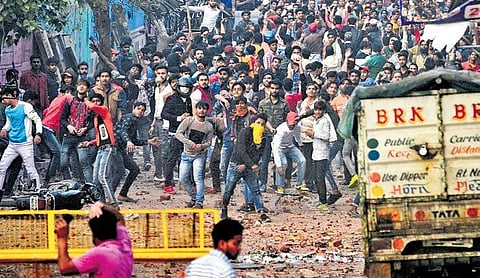Visible police bias in probe into Delhi anti-CAA riots
In a telling commentary on the Delhi Police’s investigation into the communal riots in the national capital in February, the Delhi High Court, while granting bail to Devangana Kalita, an accused, severely pulled up the police for not producing material evidence to show that she instigated women of a particular community that led to the death of a youth in the riots.
The court pointed out that Kalita had neither tried to evade arrest nor had she tampered with evidence and influenced witnesses as charged by the police. Although the trial into the more than 700 cases is still in the initial stages and there is much to be proved, the court’s observations only seem to buttress what activists, the media and opposition parties have long said—that the police investigation is biased, motivated and one-sided.
The riots took place in the backdrop of the protests against the Citizenship Amendment Act. It speaks of the bias of the police that BJP leader Kapil Mishra, whose incendiary speech to his followers on February 23 is alleged to have sparked the communal clashes, has not been named in any of the riots cases while anti-CAA protesters like CPM leader Sitaram Yechury, Yogendra Yadav and academics Apoorvanand and Jayati Ghosh find themselves in a supplementary charge sheet.
It is, therefore, not without reason that many have alleged that it is an attempt to deny citizens their democratic right to stage protests. It is well known that the police and other law enforcement agencies are completely subservient to the ruling party of the day. The only way to make the police abide by the Constitution and the oath that they take to serve without fear or favour is to insulate them from the political class.
Transfers, postings and promotions have to be free of political interference. In a far-sighted judgment in 2006, the Supreme Court had ordered the setting up of state boards to decide transfers and postings, fixed tenure for police officers and separation of investigation from law and order. None of the states have implemented any of the suggestions, ensuring that the police remain a pliable tool in the hands of the politicians to browbeat and silence critics.

